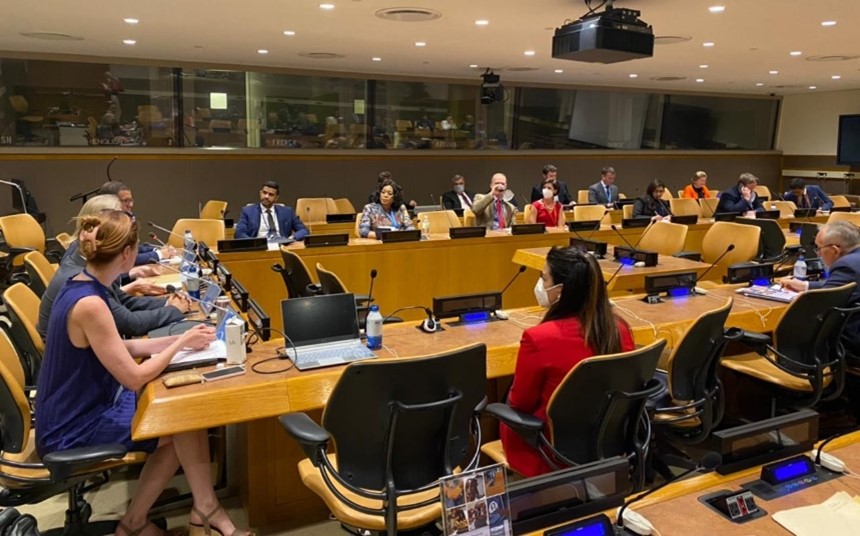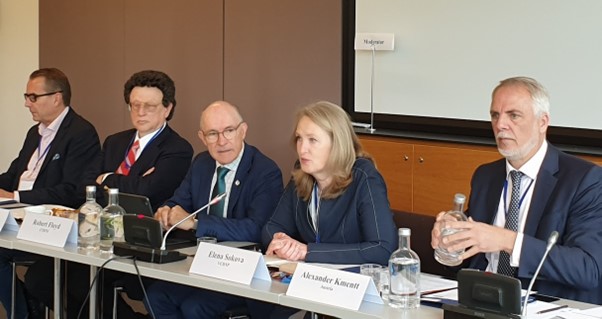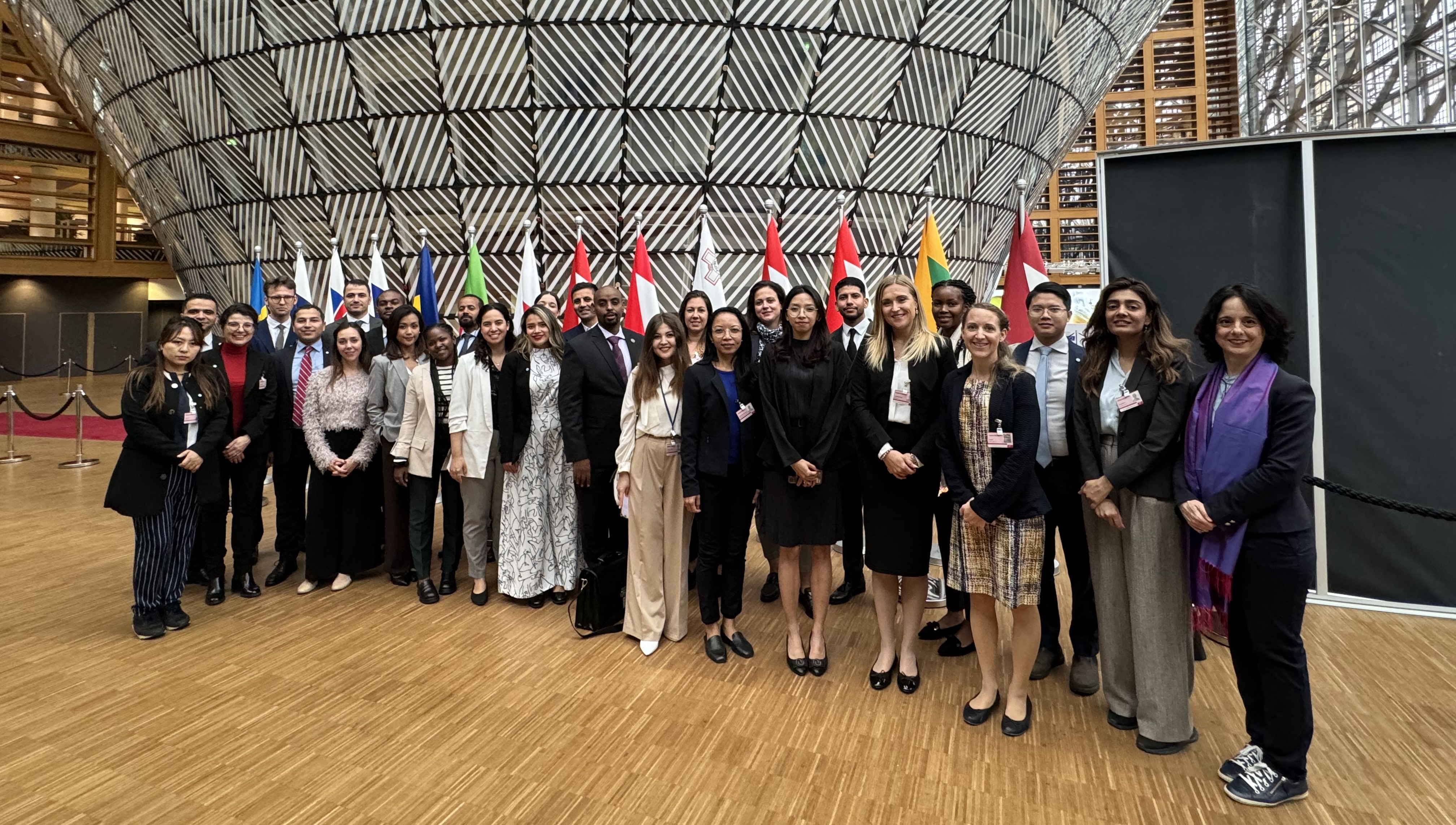
From 18 to 19 June 2024, the VCDNP, on behalf of the EU Non-Proliferation and Disarmament Consortium (EUNPDC), organised a visit for the 2024 UN Disarmament Fellows to Brussels, Belgium, to learn more about the policies and functioning of the European Union, in particular on non-proliferation and disarmament.
The group of 25 Fellows, representing countries from around the world, travel to various centres of international disarmament and non-proliferation, including Geneva, Vienna, and New York, to gather insights about the work of the international organisations and to gain a better understanding of issues relevant to non-proliferation and disarmament.
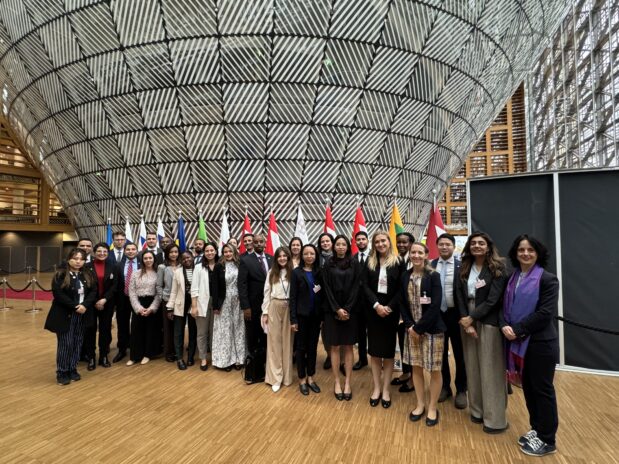
The programme in Brussels commenced on 18 June with a tour of the EU Council, to learn about one of the key legislative branches of the European Union and how decisions are made in the EU. Following the tour, participants proceeded to the European External Action Service (EEAS), where Deputy Head of the Division for Disarmament, Non-Proliferation and Arms Export Controls Mr. Stefan Tressing welcomed them. The Fellows were introduced to the work of the Division and of other policy-making organs in the EU working on non‑proliferation and disarmament matters, as well as the EU’s overall approach to these issues.
Following Mr. Tressing’s remarks, the work of the Council Working Party on Arms Export Control (COARM) and Council Working Party on Non-Proliferation (CONOP) was discussed. The day ended with presentations from representatives of the EU institutions and EUNPDC network on outer space and emerging technologies, including artificial intelligence. The UN Disarmament Fellows were also given the opportunity to hear from a representative of NATO on its work in arms control, disarmament, and weapons of mass destruction non-proliferation.
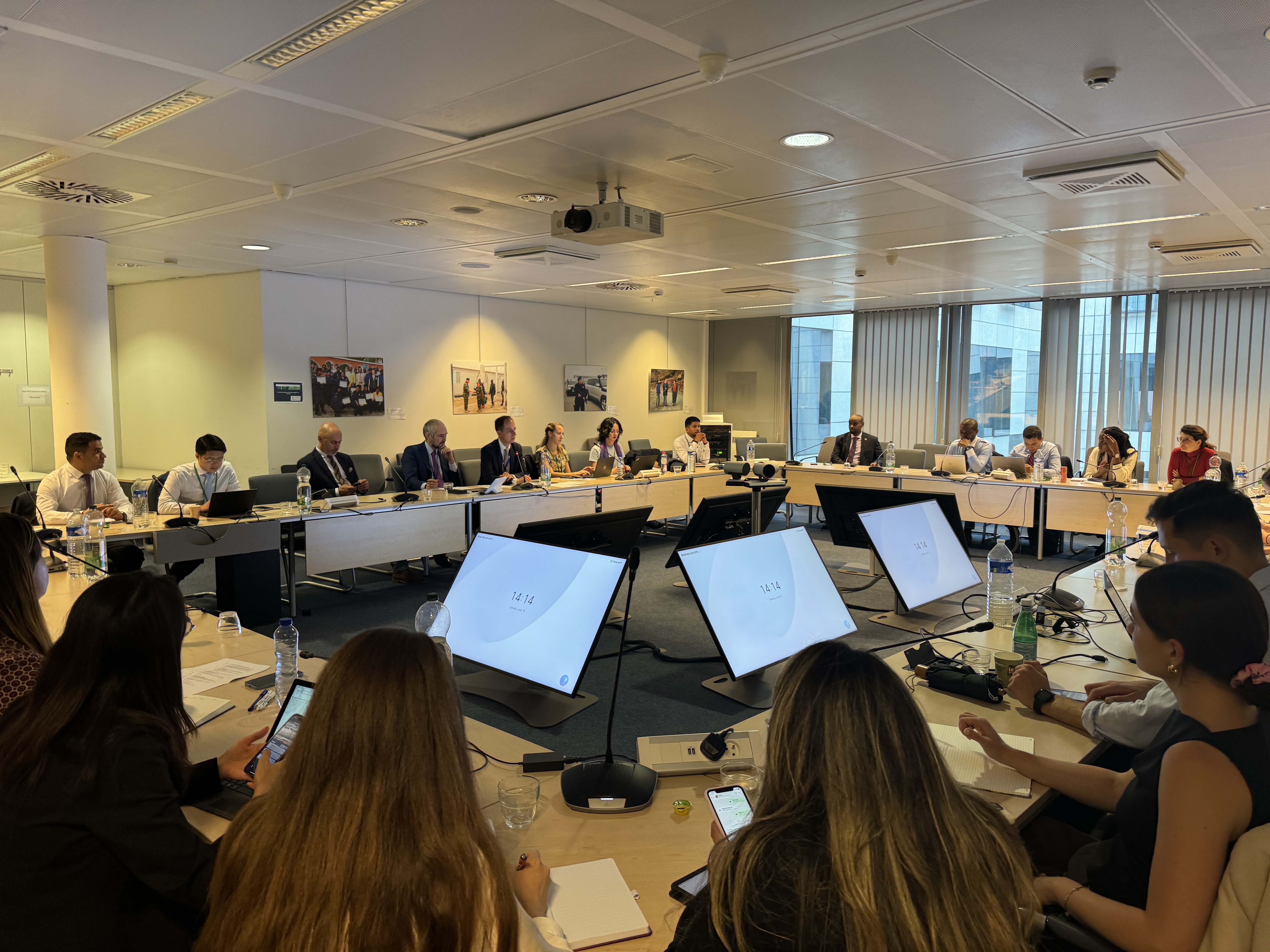
On the second day, the UN Disarmament Fellows visited the European Parliament. The tour was timely given the recent European Parliament elections that took place in early June 2024. The visit explained how the Parliament's structure and functioning, its co-legislative role together with the EU Council, and how decisions are made. After the visit, the Fellows heard thematic presentations covering a range of topics from cyber security, missile defence, and illicit arms trafficking, to the role of the EU Joint Research Centre and a review of Belgium's presidency of the EU Council. An overview of the history, structure, and activities of the EUNPDC was provided as well.
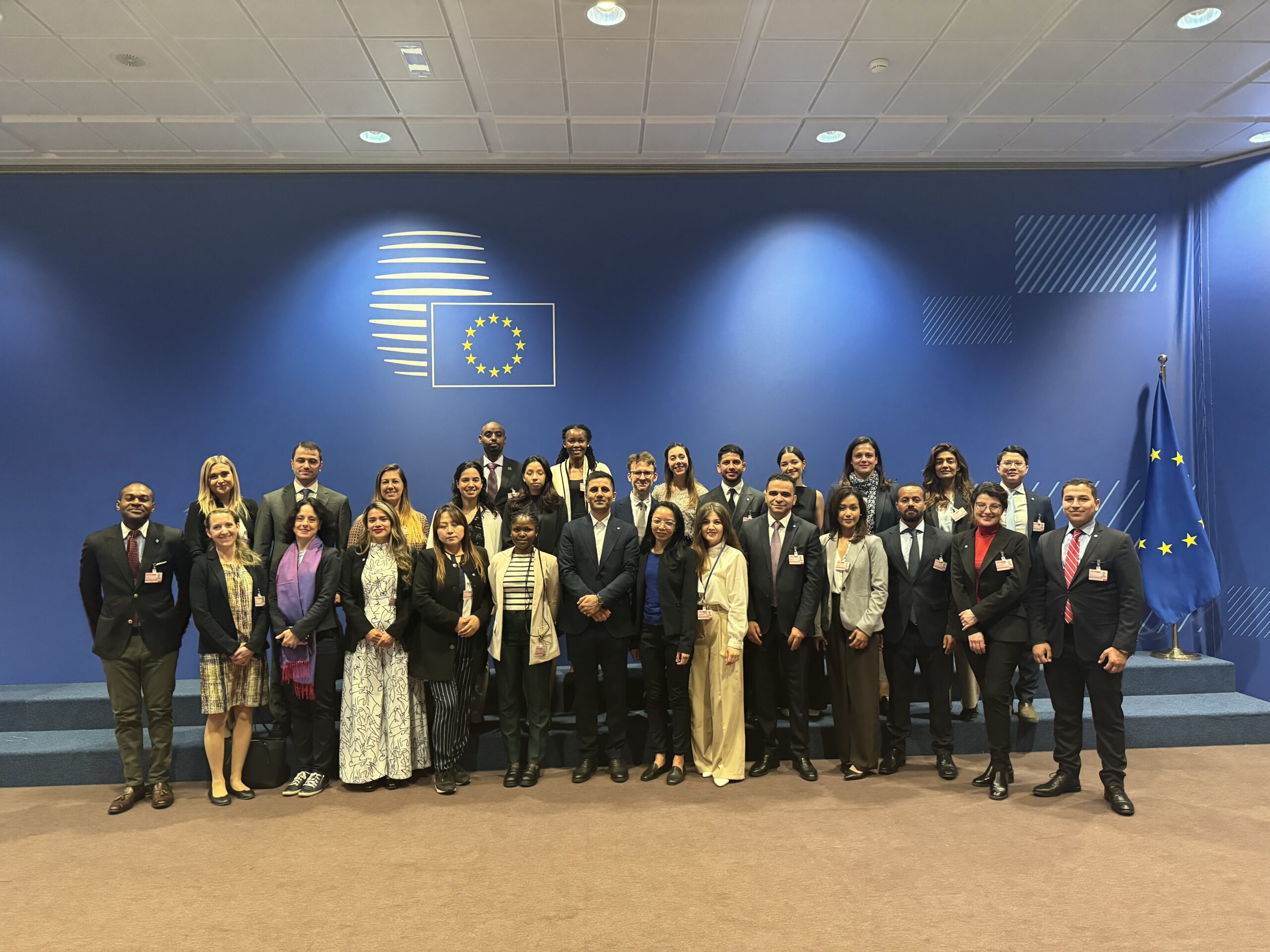
At the end of the programme an anonymous survey was circulated. Overall, the participants found the programme to be very good and useful. A selection of comments is posted below (quoted as written):
“The session helped me to understand the role of the EU in the realm of non‑proliferation and disarmament.”
“It was an excellent introduction to the work that EU is doing in regards to Disarmament and non-proliferation. I had very little knowledge prior but this visit has set a good base that I will build on.”
“It was extremely useful for a better understanding of the rules and functioning process of the main European institutions.”
The VCDNP extends its gratitude to the European External Action Service and the EU Council for their support and cooperation in organising the visit, made possible thanks to the generous support of the European Union for the EUNPDC.




